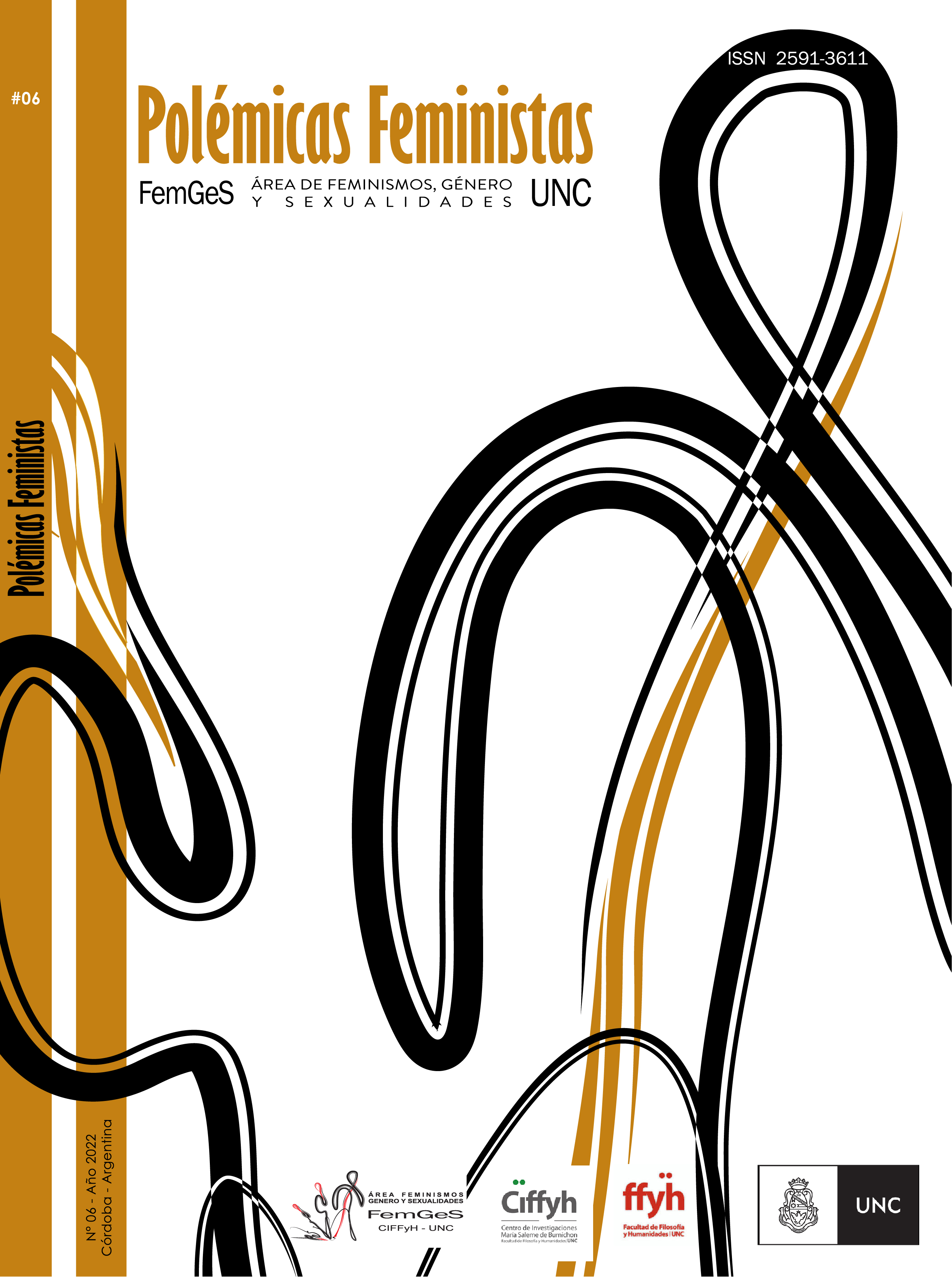A reading of El Che Amor (1965): the fracture of guerrilla emotionality in the affective poetics of ALberto Szpunberg
Keywords:
Alberto Szpunberg, poetry, affects, gender, New ManAbstract
The synthesis of affect and gender as categories of criticism enable disruptive readings that hack the consolidated speech around canonized cultural formations. Such is the case of the Latin American revolutionary epic of the sixties, which is built around the figure of Guevara's new man. After emphasizing the ability of a body to affect and be affected, this article seeks to analyze the way in which the Argentine writer Alberto Szpunberg (1940-2020) develops in El che amor (1965) a poetics capable of affecting the legitimate circulation of emotions of guerrilla masculinity from embodied performances.
Downloads
References
Abramowski, Ana y Canevaro, Santiago (comps.) (2017). Pensar los afectos. Aproximaciones desde las ciencias sociales y las humanidades. Ediciones UNGS.
Ahmed, Sara (2004). Affective Economies. Social Text 79, Vol. 22, No. 2, pp. 117-139. https://read.dukeupress.edu/social-text/article/22/2%20(79)/117/32675/Affective-Economies
Ahmed, Sara (2014). La política cultural de las emociones. UNAM.
Béjar-Ramírez, Carlos (2021). Cuerpos en fuga: el afecto espinosista en la teoría de los devenires de Deleuze y Guattari. Metafísica y Persona, Año 13, Núm. 25, https://revistas.uma.es/index.php/myp/article/view/7503
Butler, Judith (1990). Performative Acts and Gender Constitution. En Sue Ellen Case (ed.), Performing Feminism: Feminist Critical Theory and Theatre. John Hopkins University Press.
Butler, Judith (2006). Vida precaria. El poder del duelo y la violencia. Paidós.
Butler, Judith (2017). Cuerpos aliados y lucha política. Hacia una teoría performativa de la asamblea. Paidós.
Butler, Judith, Cano, Virginia y Laura Fernández Cordero (2019). Vidas en lucha. Conversaciones. Katz.
Catalano, Agustina y Fernández, Rocío (2020). Hacia una relectura del imaginario revolucionario en la poesía latinoamericana entre los años sesenta y setenta: los casos de Heberto Padilla, Roque Dalton, Juana Bignozzi y Paco Urondo. Literatura: teoría, historia, crítica, Vol. 22, Núm. 2, pp. 189-210. DOI: https://doi.org/10.15446/lthc.v22n2.86088
Cosse, Isabella (2017). Conflictos pasionales, sexualidad y militancia en la guerrilla armada en los años setenta en Argentina. En Ana Abramowskiy Santiago Canevaro (eds.), Pensar los afectos. Aproximaciones desde las ciencias sociales y las humanidades. Ediciones UNGS.
Deleuze, Gilles y Guattari, Felix (2004). Mil mesetas. Pre-textos.
Flatley, Jonathan (2008). Affective Mapping. Melancholia and the Politics of Modernism. Harvard University Press.
Gilman, Claudia (2003). Entre la pluma y el fusil: Dilemas del intelectual revolucionario en América Latina. Siglo XXI.
Gilman, Claudia (2015). Ernesto Guevara: soldado y soldador del mundo. Kamchatka Núm. 6, pp. 133-148. DOI: https://doi.org/10.7203/KAM.6.7072
Guevara, Ernesto (2011). El socialismo y el hombre en Cuba. Ocean Sur. https://biblioteca.clacso.org/clacso/se/20191016042156/el_socialismo_y_el_hombre_en_cuba.pdf
Losiggio, Daniela (2017). La política desde el affective turn: el rescate de las pasiones. En Ana Abramowski y Santiago Canevaro (eds.), Pensar los afectos. Aproximaciones desde las ciencias sociales y las humanidades. Ediciones UNGS.
Millett, Kate (1995). Política sexual. Cátedra.
Moraña, Mabel (2012). Postcriptum: el afecto en la caja de herramientas. En Mabel Moraña e Ignacio, Sánchez Prado (eds.), El lenguaje de las emociones. Afectos y cultura en América Latina, Verbuert Iberoamericana.
Molloy, Sylvia (2002). Cuaderno de Literatura Vol. 8, Núm, 15. https://revistas.javeriana.edu.co/index.php/cualit/article/view/7997
Rancière, Jacques (2011). Política de la literatura. Libros del Zorzal.
Redondo, Nilda (2016). La voz popular y el concepto de patria. Ediciones de la Campana.
Schmitt, Carl (1999). El concepto de lo político. Alianza.
Szpunberg, Alberto (2013). Como sólo la muerte es pasajera. Entropía.
Downloads
Published
Issue
Section
License
Copyright (c) 2022 María Luján Travela

This work is licensed under a Creative Commons Attribution-NonCommercial-ShareAlike 4.0 International License.
From 2022: Attribution - Non-Commercial - Share Alike (CC BY- NC- SA 4.0)
From 2011 to 2021: Attribution - Non-Commercial - No Derivative Works (CC BY- NC- ND)






